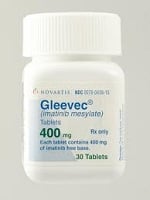Lately, the spotlight has turned on Valeant ($VRX) and Turing Pharmaceuticals when it comes to the drug-pricing debate. But the price-hiking strategy goes far, far beyond that pair of drugmakers.
A survey of roughly 3,000 brand-name prescription treatments has found that prices more than doubled on 60 of them since December 2014, Bloomberg reports. And they've more than quadrupled on 20 of the medications over that same timeframe.
According to the survey, conducted by price-comparison software provider DRX, Mylan's ($MYL) Aloprim is among the products that saw the biggest jack-ups. The cost for a vial of that drug, which treats cancer complications, increased more than twofold, Bloomberg notes.
"The data shows that price increases are an integral part of the business plan," Jim Yocum, EVP at DRX, told the news service.
 But Mylan is hardly alone. Last October, The Wall Street Journal pointed to a slew of Big Pharma moneymakers that owed part of their success to hefty price increases--including Biogen's ($BIIB) Avonex, Eli Lilly's ($LLY) Humalog, Novartis' ($NVS) Gleevec and Pfizer's ($PFE) Lyrica and Viagra.
But Mylan is hardly alone. Last October, The Wall Street Journal pointed to a slew of Big Pharma moneymakers that owed part of their success to hefty price increases--including Biogen's ($BIIB) Avonex, Eli Lilly's ($LLY) Humalog, Novartis' ($NVS) Gleevec and Pfizer's ($PFE) Lyrica and Viagra.
And while Valeant has pledged to nix most of its planned price increases this year, recent political pushback and public scrutiny haven't convinced some of its peers to do away with the practice. As Deutsche Bank analysts pointed out last month, Pfizer boosted the list prices of dozens of therapies for the new year by an average of 10.6%. They also highlighted hikes at Allergan ($AGN) and Endo ($ENDP), where painkiller Percocet jumped up by 25%. Raymond James analysts unveiled an 8% increase in Amgen's ($AMGN) Enbrel, which followed an 8% increase last September and a 10% increase last May. And the list goes on.
As drugmakers have argued, boosting their list prices doesn't mean necessarily boosting their bottom lines all that much. Insurers and health plans negotiate discounts, meaning pharma companies don't reap the entire increase. Still, as Yocum pointed out, a higher starting point for negotiations helps them end up at a higher finishing point. "Even if they don't get all of that price increase, they will get some of it," he told Bloomberg.
Meanwhile, it's former Turing CEO Martin Shkreli and interim Valeant CEO Howard Schiller who will land in the congressional hot seat later this week. The two are scheduled to appear before The House Committee on Oversight and Government Reform to explain increases on Turing's Daraprim and Valeant heart meds Isuprel and Nitropress, whose prices skyrocketed after being acquired by their current owners.
- get more from Bloomberg
Special Reports: 10 big brands keep pumping out big bucks, with a little help from price hikes | The top 10 most expensive drugs of 2013